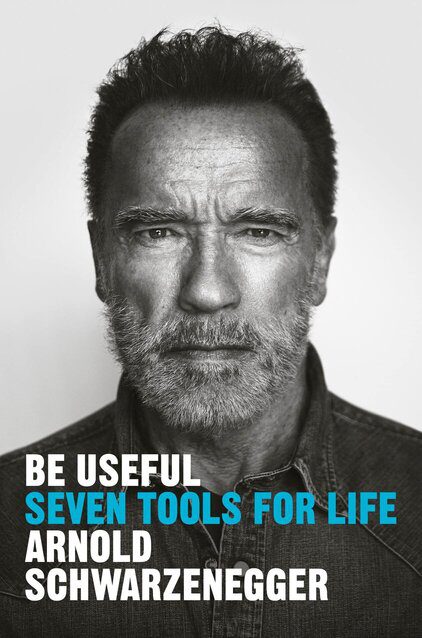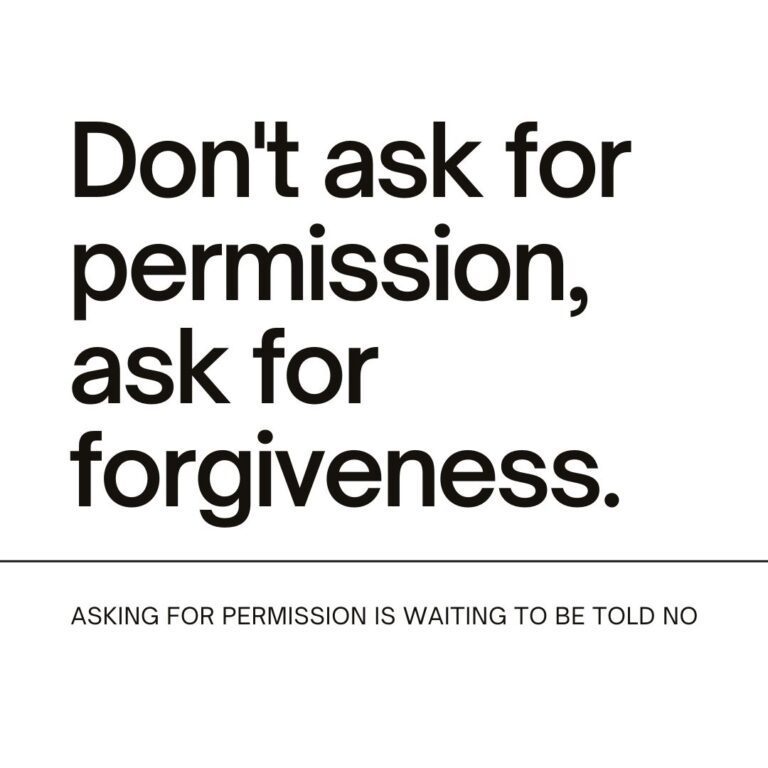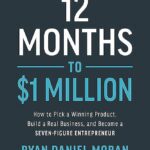It’s easier to ask forgiveness than it is to get permission – Rear Admiral Dr. Grace Hopper
If you want to give yourself any chance of achieving any of your wildest dreams, don’t ask for permission, ask for forgiveness because asking for permission is waiting to be told NO. Most of your big dreams and visions in life are going to look scary, risky, and even dangerous. Well-meaning family and friends are going to tell you the odds of achieving your goal, the impossibility of the task, why it won’t work, and if it were possible, someone else would have tried it, etc If you really want to get your dreams achieved, you need to first set out a vision, believe it can be done, relentlessly take action to achieve your dreams and keep showing up daily.
“When you take charge of your life, there is no longer need to ask permission of other people or society at large. When you ask permission you give someone veto power over your life.” – Albert F. Geoffrey
I remember in 2012 when I wanted to start my entrepreneurial journey, I decided to move to Accra, Ghana from Lagos, Nigeria. I made the decision to relocate to neighboring Ghana mainly because Ghana had a constant electricity power supply and I wanted to leave my comfort zone. It was a tough decision to make and execute, I had to leave Nigeria where I had stayed all my life, end a long-term romantic relationship, and leave everything else behind. Before I left the country in April 2012, I spoke about my goal to my five closest friends and family members and almost everyone told me the reason why it wouldn’t work and how it was going to be tough. I did not listen and I left for Accra later that year.
I consider the leap of faith to leave Nigeria to start my entrepreneurial journey in Ghana to be one of the best decisions that I have ever taken in my life. It was a scary decision to make coupled with the fact that almost everyone told me it couldn’t work but my parent trusted that I knew what I was doing and supported my move. Moving to a new city or environment is usually tough as one needs to rebuild one’s network and gain footing to thrive. The rest they say is history now as the first couple of months was a roller coaster of ups and downs but I persevered and gradually built my entrepreneurial confidence. One of the major lessons I learned from this episode of my life is “Ask for forgiveness, not permission”.
“If you don’t design your own life plan, chances are you’ll fall into someone else’s plan. And guess what they may have planned for you? Not much.”—JIM ROHN
If you want to achieve anything worthwhile in life, the philosophy of not asking for permission might come in handy. I try to heed the words of Ralph Waldo Emerson who once said “To be yourself in a world that is constantly trying to make you something else is the greatest accomplishment.” Trying to follow your dreams is one of the greatest forms of being yourself as you would discover who you truly are in the process and develop life skills such as perseverance, grit, character, and integrity.
Whatever course you decide upon, there is always someone to tell you that you are wrong. There are always difficulties arising which tempt you to believe that your critics are right. To map out a plan of action and follow it to the end requires some of the same courage which a soldier needs. Peace has its victories, but it takes brave men to win them. – Ralph Waldo Emerson
To achieve your wildest dreams, you have to be somewhat unreasonable as most people around you would not see your vision. You have got to protect your dreams but work towards it relentlessly. As Irish playwright and political activist George Bernard Shaw once said “The reasonable man adapts himself to the world; the unreasonable one persists in trying to adapt the world to himself. Therefore, all progress depends on the unreasonable man.” History is filled with stories of statements made by so-called experts about the improbability of new ideas.
The reasonable man adapts himself to the world; the unreasonable one persists in trying to adapt the world to himself. Therefore, all progress depends on the unreasonable man. -George Bernard Shaw
Here are some statements made by experts about budding innovations before they became well-known:
- “The phonograph is of no commercial value.” —Thomas Edison, remarking on his own invention in 1880.
- “There is no likelihood man can ever tap the power of the atom.” —Robert Millikan, Nobel Prize winner in physics, 1920.
- “It is an idle dream to imagine that automobiles will take the place of railways in the long-distance movement of passengers.” —American Road Congress, 1913.
- “With over 50 foreign cars already on sale here, the Japanese auto industry isn’t likely to carve out a big slice of the U.S. market.” — Business Week, August 2, 1968.
- “I think there is a world market for about five computers.” —Thomas Watson, chairman IBM, 1943.
- “There is no reason for any individual to have a computer in their home.” —Ken Olsen, president of Digital Equipment Corporation, 1977
- “This ‘telephone’ has too many shortcomings to be seriously considered as a means of communication. The device is inherently of no value to us.” — Western Union internal memo, 1876.
- “While theoretically and technically television may be feasible, commercially and financially it is an impossibility.” — Lee DeForest, inventor.
- “There will never be a bigger plane built.” — A Boeing engineer, after the first flight of the 247, a twin engine plane that holds ten people
First people will tell you that you are wrong. Then they will tell you that you are right, but what you’re doing really isn’t important. Finally, they will admit that you are right and that what you are doing is very important; but after all, they knew it all the time. – Jonas Salk, the developer of the polio vaccine
Ignore the Naysayers
In his book, Be Useful: Seven Tools for Life, former bodybuilder, movie star and thirty-eighth governor of California Arnold Schwarzenegger advised not asking for permission and ignoring the naysayers as one of the principles that enabled him to achieve his wildest dreams. He writes

There will always be people in your life who doubt you and doubt your dream. They will tell you it’s impossible. That you can’t do it or that it can’t be done. The bigger your dream, the more often this will happen, and the more of these people you will meet.
Naysayers are a fact of life. That doesn’t mean they get to have a say in your life. It’s not that they’re bad people. They’re just not very useful to someone like you. They’re scared of the unfamiliar and the unknown. They’re afraid of taking risks and putting themselves out there. They’ve never had the courage to do what you’re trying to do. They’ve never crafted a huge vision for the life they want and then put a plan together to make it a reality. They’ve never gone all in on anything.
When it comes to you and your dreams, the naysayers have no idea what they’re talking about. And if they haven’t done any of the things that you’re trying to do, the question you need to ask yourself is: Why should I ever listen to them? The answer is, you shouldn’t. You should ignore them. Or better yet, hear what they have to say and then use it as motivation.
“You have a choice with the naysayers you face on the road to achieving your goals. You can ignore them or you can use them, you just can’t ever believe them.”
In 2013, AngelList co-founders Naval Ravikant and Babak Nivi launched Venture Hacks—a blog dedicated to startup advice. Their first blog post was titled “Ask forgiveness, not permission“, they write:
AngelList “corporate policy” is that team members should ask forgiveness, not permission. We would rather have someone do something wrong than ask permission to do it. Or better, we would rather have someone do something right and not need permission to do it. This is the most common outcome.
We would rather have people ship to production whenever they want, than go through an internal review process. We can fix it on production. We prefer the customer’s review process. And it isn’t too hard to reveal a new feature to a small portion of our users and iterate on it as we expand it to more users.
Meditation
- Daily Clam with Tamara Levitt – Snacks and Magazines
- By fixating on an end result, we can easily be thrown off course. When we go through a rough patch, anger and self-judgment can set in and our commitment to practice suffers. Along the path, they are set to be bumps, perhaps when we set an intention to meditate every day, we get busy at work and fall off track.
- We should expect these challenges and make an effort to bring a sense of lightness and friendliness to our practice. This path is a long one and some of the terrain would be uphill and rocky, some downhill and smooth. Be kind to yourself, enjoy the journey, and remember that the way you walk the path is just as important as where it leads.
‘The road to enlightenment is long and difficult, and you should try not to forget snacks and magazines.’ – Rick Field
Podcast
- Sir Kensington’s: Scott Norton and Mark Ramadan | How I Built This with Guy Raz
All the best in your quest to get better. Don’t Settle: Live with Passion.



Comments are closed.